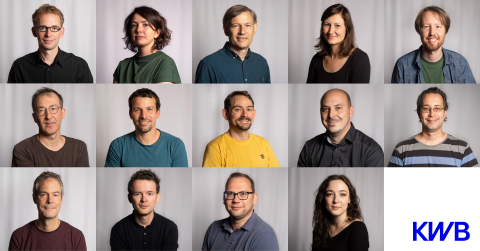Meet the Team: Kompetenzzentrum Wasser Berlin gGmbH

December 6, 2022
What are your main tasks in the project?
KWBs main task in PROMISCES is to manage Work Package 4 (Demonstrating solutions for zero pollution water cycles). As Work Package Leader, our tasks include monitoring and ultimately writing a guidance for operators of advanced wastewater treatment units for best practices in removal PFAS and other iPM(T) compounds. But we are also involved in nearly all the other work packages. In WP2, we are monitoring and modelling the fate and transport of compounds in urban pathways (wastewater and stormwater) and developing a monitoring concept for urban aquifers. Additionally, we are involved in modelling compound fate and transport through bank filtration and in conducting a human health risk assessment for numerous circular economy routes. Our tasks in WP3 include determining PFAS transfer factors from sewage sludge to recovered fertilizers. In WP5, we test the decision support framework with end-users to ensure that it is easy to use.
Since we are one of the co-coordinators of the project, we’re also involved in many organizational aspects of PROMISCES, and our team member Dr. Ulf Miehe serves as the project’s Innovation Manager.
What are your goals?
Our goal is to improve understanding of the fate and transport of the compounds in urban water cycles, including stormwater runoff, groundwater, wastewater and sewage sludge. We also want to find out what the best strategies are to remove these compounds and thus to enable reuse in a circular economy.
What do you particularly like about the project?
We particularly like that the project doesn’t only investigate solutions for remediating hazardous chemicals such as PFAS and iPM(T)s from soil, sediment and water. It also provides guidelines for political decisions to prevent future contamination of the environment which such chemicals. We also like that the project works on implementing a circular economy which reuses materials and media.
How does your work help the general public?
Our work and our results will not only be interesting for Berlin, but also for other cities with semi-closed water cycles or cities which want to reuse water. With our risk assessment work, we further contribute to a better understanding of how human health may be affected by PFAS and iPM(T)s. And last but not least: Our work on the fate of compound transfer from sewage sludge to recovered fertilizers, as well as on the removal of compounds in advanced wastewater treatment, will enable operators and other technical actors to fine tune or select better technical solutions.
